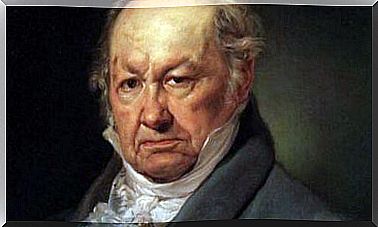Closing Necessity Test: Do You Tolerate Uncertainty?

Throughout life, we all have to deal with uncertainty. Unpredictable events or circumstances in which experience helps us little. However, not all of us react the same to fog. Some people feel more comfortable in this cognitive limbo, while others need to see the horizon again as soon as possible. It is precisely these differences that are measured by the Need for closure test.
If we analyze the people around us, we can find those who find it difficult to make firm decisions, anticipate or commit to an opinion. On the other hand, we will find individuals with a preference for order and routine and with ideas that seem firm.
If you want to know which group you belong to, you can get an idea with the test that we present below.

What is the need for cognitive closure?
This concept refers to the concern to seek and maintain a definitive answer to a problem or event. It is an aversion to confusion, uncertainty, or ambiguity.
Although external circumstances may influence our response, we all have a predisposition to place ourselves at some point on this continuum in a relatively stable way.
The need for closure is established around two different trends:
- Urgency trend : refers to the need to obtain an immediate response to an uncertain situation – “when will they tell us if we have passed the job interview?” -. Thus, those who present a marked tendency of urgency are usually quick when making decisions, and may experience great anguish due to lack of specificity.
- Tendency of permanence : defines the strong desire to maintain and perpetuate the cognitive closure that has been achieved. The need for that knowledge that has been obtained to remain stable and firm, avoiding any new information that shakes that stability.
The need to close test
The Need for Closure test is an instrument that allows us to measure where each individual is in the continuum. Although the initial test had 42 items, today we present the reduced version.
It consists of 14 statements, which must be answered by assigning a score between 1 (totally disagree) and 6 (totally agree) depending on what represents us the most.
Closing need test items
- In case of uncertainty, I prefer to make an immediate decision, whatever it may be.
- When faced with several potentially valid alternatives, I decide in favor of one quickly and without hesitation.
- I prefer to decide according to the first available solution, rather than considering in detail what decision I should make.
- I feel very uncomfortable when things around me are out of place.
- I generally avoid participating in discussions about ambiguous and controversial topics.
- When I need to face a problem, I don’t think much about it and make up my mind without hesitation.
- When I need to solve a problem, I generally don’t waste time considering different points of view on it.
- I prefer to be with people who have the same ideas and the same tastes as me.
- I generally do not look for alternative solutions to problems for which I already have a solution available.
- I feel uncomfortable when I cannot give a quick answer to a problem I am facing.
- Any solution to a problem is better than remaining in a state of uncertainty.
- I prefer activities in which it is always clear what to do and how to do it.
- After finding the solution to a problem, I find it a pointless waste of time to consider other possible solutions.
- I prefer things that I am used to than those that I do not know and cannot predict.

Interpretation
To obtain the final result, simply add the score (between 1 and 6) for each of the items. Thus, the final result would oscillate between 0 and 84, the need for cognitive closure being greater the higher the score.
This concept influences us when it comes to generating hypotheses and alternatives to the situations that arise. It also leads us to be more or less empathetic, tolerant and flexible when it comes to forming a judgment or opinion.









